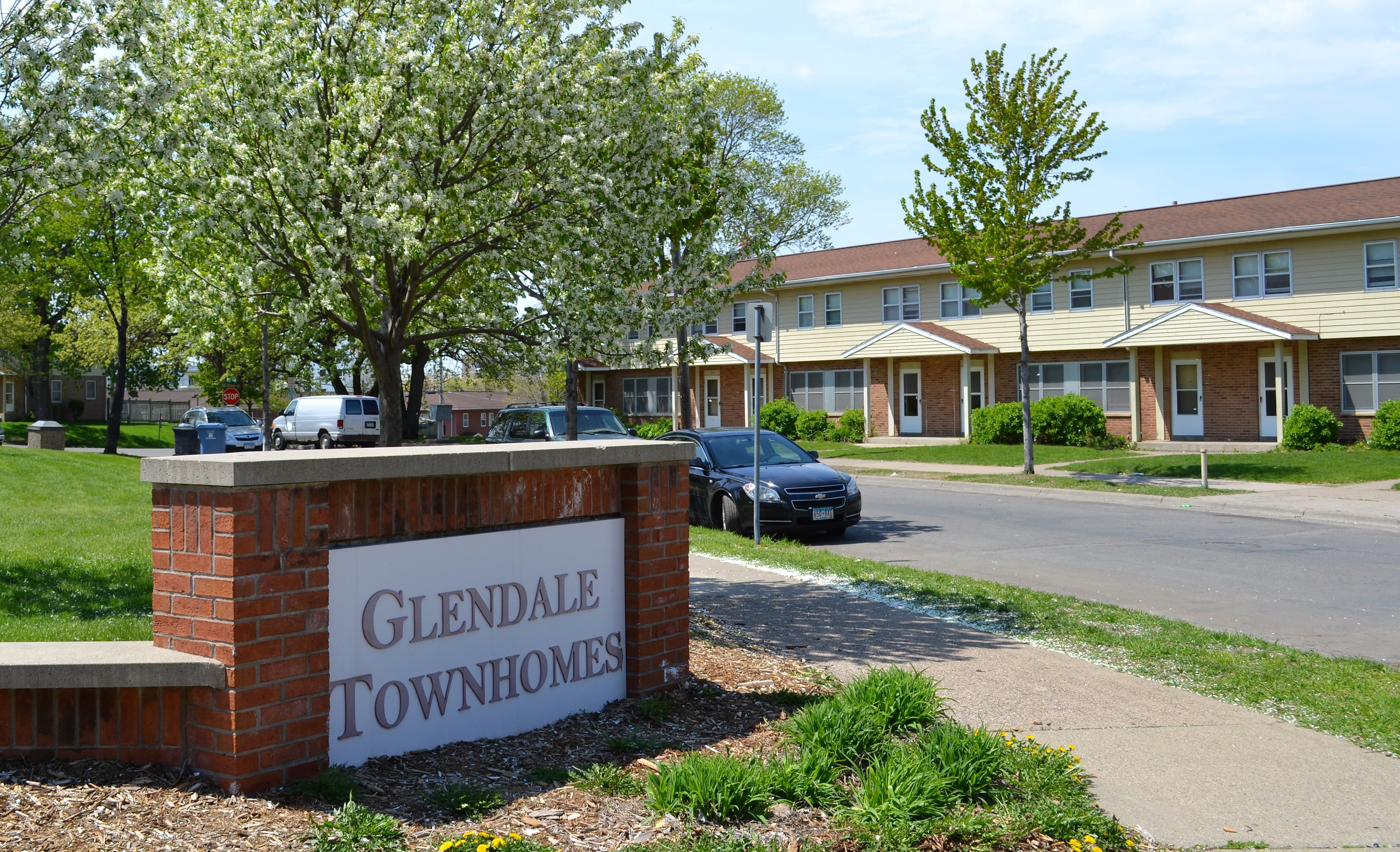On December 1, 2017, MPHA submitted the following letter to the Minneapolis Heritage Preservation Commission in response to a suggested nomination for our Glendale Townhomes property. MPHA does not endorse or authorize such a measure.
To the Planning Manager and Members of the Commission:
The Minneapolis Public Housing Authority (MPHA) owns and manages Glendale Townhomes, a development of 184 units of family public housing in the Prospect Park neighborhood. MPHA has been asked to submit a letter authorizing an application for Glendale to receive historic preservation designation. MPHA treasures our 65-year history of providing essential housing to low-income families at Glendale. It is for this reason that our agency cannot authorize or support a historic designation that would in any way limit Glendale’s capacity to serve this vital role in the future.
Such a designation faces fundamental legal barriers. MPHA cannot authorize any designation that acts as an encumbrance upon the property without risking a breach of our contractual agreements with HUD. Both the Declaration of Trust (whereby the property is held by MPHA in trust for HUD) as well as the Annual Contributions Contract (whereby HUD agrees to provide MPHA with housing subsidies) specifically prohibit MPHA from encumbering the property or any portion of it. To authorize or permit a historical designation exposes MPHA to legal risks related to our obligations under these contracts. While MPHA is pursuing a long-term initiative to replace the Declaration of Trust with a more modern format, this does not alter the inherent problem with placing local restrictions on essentially federal property.
Beyond these legal issues, we are concerned that historic designation would inhibit our ability to improve this aging, outdated housing—much to the detriment of the extremely low-income families who live there. Glendale is MPHA’s oldest major property, with more than $15 million in capital needs (plumbing, sewer, electrical, roofing) that vastly exceed the available federal funding. Glendale’s buildings and grounds, designed in 1952, need modernization to suit the families of today: dining rooms, first-floor bathrooms, accessibility for the disabled, a better community layout that maximizes green space and interfaces well with the neighborhood around it. The families at Glendale should not be frozen in time; they deserve the chance to help design modern homes that work well for them. Given the severe shortage of affordable housing in Minneapolis, MPHA must also explore the potential to create additional homes for families at Glendale, in addition to the 184 families we serve today.
Two years ago, the Minnesota Historical Society determined that the structures at Glendale do not convey historical significance. We concur. Glendale’s value is not in its physical design but in the essential housing and community it provides. There is presently no blueprint, timeline, nor financial plan set in motion; any change would be many years away. Yet we know that Glendale must undergo redevelopment at some point in the coming years if we are to preserve this community asset. We cannot endorse any measure that might inhibit this potential.
Across our portfolio of 6,000 public housing units, MPHA welcomes the opportunity to collaborate with the City of Minneapolis in any way that moves us toward our goal of preserving and modernizing these homes. MPHA also shares the desire to celebrate the historical contributions of Glendale. Designation by the Historical Preservation Commission, however, is not the answer. We believe the best way to honor this legacy is by working together to assure Glendale provides quality family homes for decades to come, for families most in need.
Sincerely,
Gregory P. Russ
Executive Director/CEO
Minneapolis Public Housing Authority






